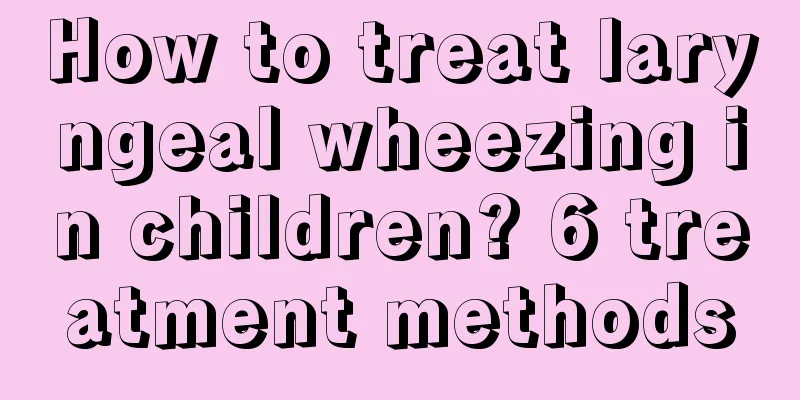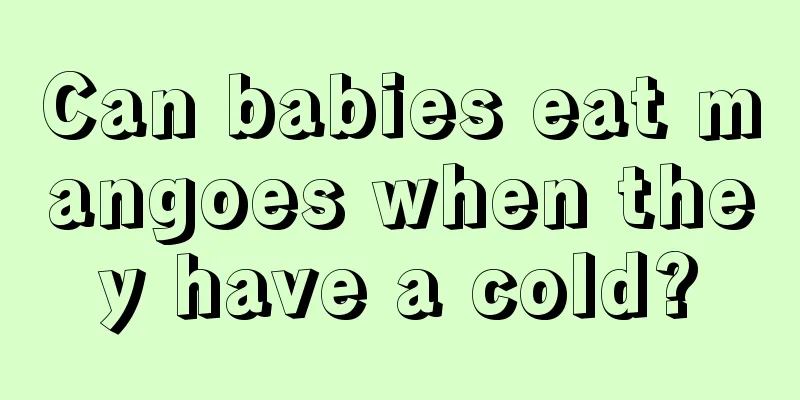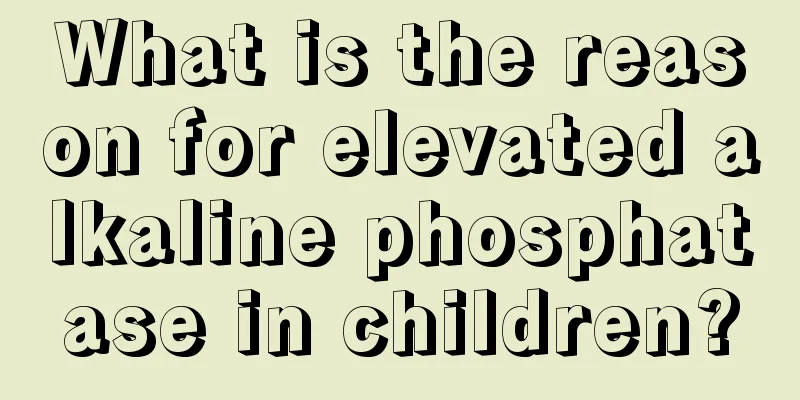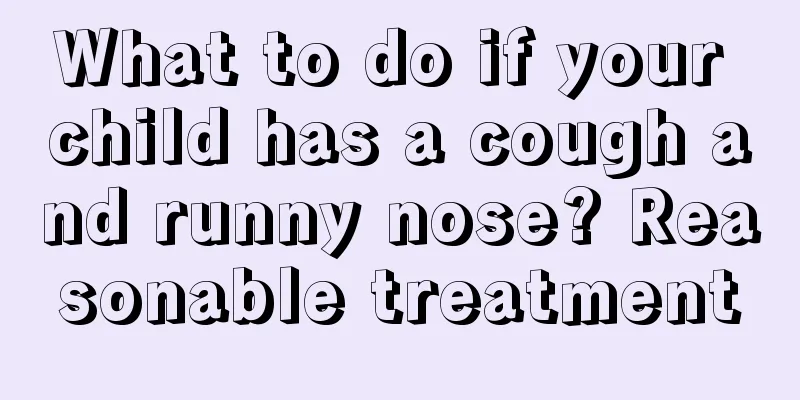How to treat laryngeal wheezing in children? 6 treatment methods

|
The larynx of children is relatively weak and is still in the growth stage. If the congenital laryngeal bones are not fully grown, or if there are acquired edema, muscle and nerve incoordination and other problems, it is very likely to induce laryngeal wheezing in children. When parents discover that their children have gurgling and wheezing sounds in their throats, they should seek medical attention immediately to avoid worsening of the condition and damage to the child's respiratory tract. 1. General treatment includes strengthening nursing care, preventing colds, diarrhea and other inducing factors, getting more sun exposure, and preventing complications. Congenital simple laryngeal stridor generally does not require special treatment, only intensive care and attention to prevention of respiratory tract infections. After 18 to 24 months, as the laryngeal cavity enlarges and the laryngeal tissue gradually returns to normal, the stridor will gradually disappear. Advise parents to prevent their children from catching cold and being frightened, so as to avoid respiratory tract infections and laryngeal spasms, which will aggravate laryngeal obstruction. Pay attention to maintaining water, electrolyte and acid-base balance. At the same time, give sufficient calcium supplements and add complementary foods and other auxiliary treatments in time. If the attack is severe and breathing is difficult, the baby's position can be adjusted to a side-lying position to alleviate the symptoms, and symptomatic treatment can be given. 2. For severe laryngeal edema, use dexamethasone and 10% calcium gluconate to eliminate edema; some children can use antispasmodic and antiasthmatic drugs. Occasionally, in cases of severe laryngeal obstruction, tracheotomy may be performed. 3. Neurogenic laryngeal stridor: Scopolamine can be tried for neurogenic laryngeal stridor. Start with a small dose, 0.02 mg/kg intravenous drip once a day. If it is ineffective, gradually increase the dose to 0.04-0.06-0.08 mg/(kg·d) each time until the symptoms of laryngeal stridor disappear. 4. If there is pneumonia during respiratory infection, antibiotic treatment should be given, and children with respiratory failure can use mechanical ventilation. If there is sputum when auscultating the lungs, ultrasonic nebulization suction of sputum should be given, and the back should be patted frequently, and respiratory care should be provided. 5. Hypocalcemic laryngeal stridor: Laryngeal spasm and laryngeal stridor seen in infantile tetany can be treated with calcium supplements and vitamin D. 6. Surgical treatment is required for patients with breathing difficulties caused by congenital abnormalities of the laryngeal and tracheal development, abnormalities of large blood vessels, congenital laryngeal cysts, tumors, etc., as soon as possible. The treatment of subglottic stenosis depends on the degree of obstruction. Mild cases do not require special treatment and the symptoms will disappear naturally after the laryngeal cavity is enlarged. Severe cases require tracheotomy. |
<<: What can’t a 1-year-old baby eat? These foods must be avoided
Recommend
Are newborn babies smart?
Just because a newborn has a bad temper doesn'...
What should I do if my child is anemic at one and a half weeks old?
Iron deficiency anemia is a disease that our babi...
What to do if your child has a picky eating habit?
The life of children nowadays is really enviable....
What causes red eye bags in children?
When a person cries for a long time, his eyes wil...
When is the best time to breastfeed a newborn baby?
The arrival of many newborns makes a family caugh...
What are the symptoms of congenital heart disease in children?
Congenital heart disease, doctors often refer to ...
My baby hasn't had a bowel movement for four days and keeps farting
We all know that babies are the future of every f...
Diseases that children are susceptible to during the four stages of development
Neonatal period Various congenital diseases may o...
What should I do if my child’s tonsils are inflamed and swollen?
Swollen and inflamed tonsils is a common disease ...
Treatment of cerebral palsy in children
Cerebral palsy is a very common disease. This typ...
Why do girls develop lumps in their breasts?
When girls reach puberty, their breasts will deve...
Symptoms of autism in 3-year-olds
The symptoms of autism in 3-year-old babies are n...
Treatment for children with a temperature of 37.5
As parents, when our children have a body tempera...
The child suddenly cried out in pain in the chest, what's going on?
When children are sick, they are often unable to ...
What to do if your baby has a cold and cold hands and feet
If the baby has a cold and has cold hands and fee...









